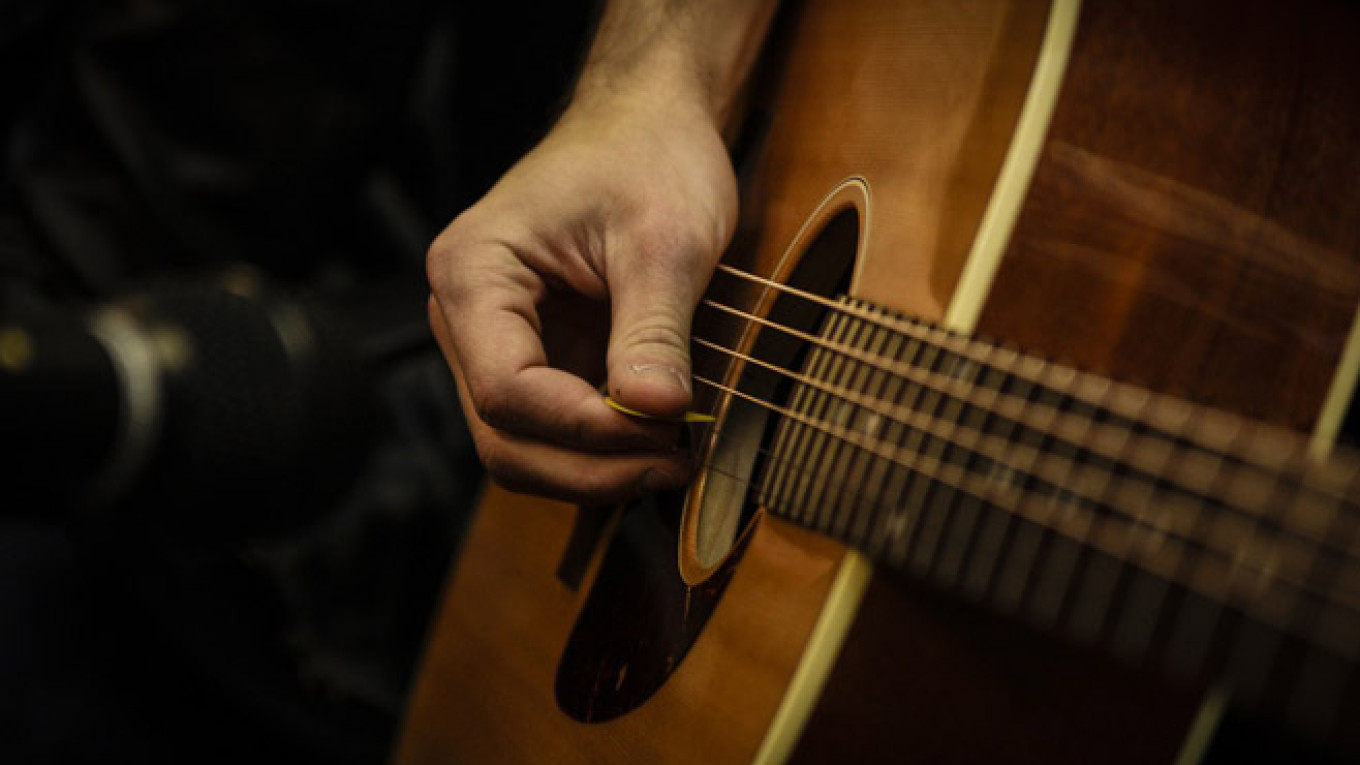In 2003, British rock star Sting was reportedly making $2,000 a day in royalties from a single song, "Every Breath You Take," which he recorded 20 years ago. He has earned over $20 million in total on the song since 1983.
In Russia, it may take a lifetime for a musician to earn the amount Sting earned in just one day.
Intellectual property rights specialists and musicians say the existing system for monitoring, collecting and payment of royalties — administered by the Russian Authors' Society (RAO) — is to blame. While the RAO's rules are clear, its reliance on self-reporting means that many companies avoid paying royalties, depriving artists of much-needed income.
Ilya Reznik, a Russian poet who authored hundreds of hit songs over the past half century, was for years paid just 12 kopecks (0.02 cents) each time his works were performed on television or radio.
"The royalties than I get from the RAO as an author don't correspond with the commercial success of my work, they are ridiculous and humiliating,'' said Reznik in an open letter to the Prime Minister Dmitry Medvedev, published on the poet's official website late last year.
Reznik later withdrew the rights to his 1,386 songs registered with the RAO, a nongovernmental organization created by artists in 1993 with the aim of protecting intellectual property rights.
The RAO is the largest and most prominent royalty collecting society in Russia, representing the interests of nearly all Russian musicians and more than 2 million foreign right holders.
According to the RAO's press officer Marina Muradova, royalties are distributed monthly on the basis of self-compiled reports by theaters, concert halls, shops, restaurants, television and radio, record companies, and content providers. The direct distribution of royalties to the rights' holders is then carried out by the RAO.
But counting how many times a certain song has been performed and identifying who has played it is a point of contention between artists and those who use their works.
"To provide a formal report restaurants need to hire a qualified person who would take care of this — [which] is just impossible,'' said Maria Orlova, a lawyer for the Federation of Restaurateurs and Hoteliers of Russia.
Instead of living off royalties, artists make money mostly by giving concerts and performing at corporate events.
According to the RAO's annual report, in 2013 — the last year publicly reported — royalty fees reached just 4.4 billion rubles, or $104.8 million according to the average exchange rate for 2013.
Over half of those royalties, or 2.8 billion rubles ($66.7 million), were for the right to publicly perform covers of songs. Royalties for radio and television stood at 956 million rubles ($22.8 million), while the pre-recorded use of songs brought in 390 million rubles($9.3 million).
Rights holders ultimately received 3.2 billion rubles ($76.2 million), with around 1.2 billion rubles ($28.6 million) going to RAO.
Successful musicians pay little attention to the amount of royalties they accrue. But for those artists who are already retired or don't perform their songs themselves, the royalty payments are sometimes their only source of income.
Anatoly Semenov, Russia's presidential commissioner for intellectual property affairs, said the main problem lies in the fact that the state doesn't want to deal with the problem itself and instead delegates the task to artists-turned-bureaucrats.
Reznik believes that only action by the state can improve the copyright situation in Russia.
"It is necessary to radically change the situation with the management of authors' rights in the Russian Federation, taking this function under state control," the poet wrote in his letter.
Reznik's lawyer Sergei Zhorin said that piracy and the unauthorized use of creative works also undercut artists' royalties and that harsher penalties must be implemented for those who violate the copyright law.
The existing legislation provides penalties of up to 5 million rubles ($96,000) for copyright violations, however infringers generally pay a maximum of 15,000 rubles ($290).
It's particularly difficult to monitor and prosecute copyright violations on the Internet. Under the law, copyright-protected material can only be placed on the Internet with the artists' permission, providing them with an additional set of royalties. However, due to the lack of control in this area, the problem of copyright infringement on the web remains unsolved.
Some hope that a new law, entering into force on May 1, will help improve the situation. This legislation, recently approved by President Vladimir Putin, allows the government to permanently block websites containing pirated books, music, software or video content.
Contact the author at bizreporter@imedia.ru ? ? ?


